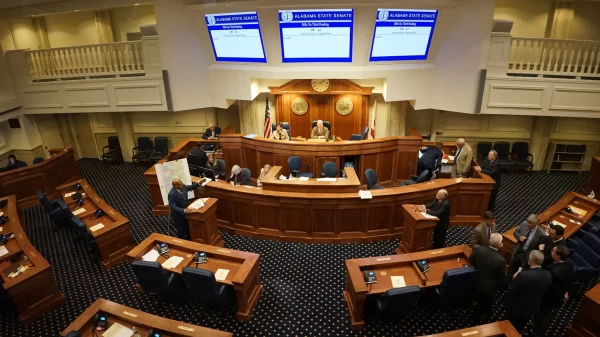When lawmakers compare Birmingham to cities in crisis, rewrite board rules and silence public voices, it’s not about water — it’s about control.
Something doesn’t add up. That’s the only honest way to describe SB330 — the bill to overhaul the Birmingham Water Works Board.
And in Alabama politics, when the math doesn’t make sense, it is not a mistake — it’s a power grab wrapped in a payout. Follow the money, and you’ll usually find the motive.
It’s not reform. It’s a political maneuver dressed up as concern, and it doesn’t pass the smell test.
Let’s begin with the most obvious problem: SB330 strips local control from Birmingham and hands it to surrounding suburbs — some of which serve fewer than 100 people. Meanwhile, over 90 percent of the Birmingham Water Works’ customers reside in Jefferson County.
That’s not about representation. That’s about consolidation of power.
Then there’s the justification offered by the bill’s sponsor, Rep. Jim Carns of Mountain Brook. When pressed to explain the need for the bill, Carns pointed to two cities: Jackson, Mississippi and Flint, Michigan.
Let’s be clear: Both of those cities experienced devastating water crises. But those crises weren’t caused by local boards mismanaging otherwise healthy systems. They were the result of deliberate policy decisions — state-level budget cuts, government interference and a callous disregard for the health and well-being of poor, Black communities.
So why use them as examples here?
The Birmingham Water Works Board is not Flint. It’s not Jackson. Its water meets high federal standards. Its bond rating is strong. Its infrastructure is not failing, and its leadership — while not perfect — has taken steps to improve long-standing billing issues.
So let’s ask the real question: why choose those two cities?
Why not name a failing utility in a predominantly white suburb or small town? Why not talk about actual corruption cases in places that bear a closer resemblance to the problem you’re supposedly trying to fix?
You don’t have to squint to see what’s going on. Birmingham is a majority-Black city. Flint and Jackson are, too. So when a white lawmaker from an overwhelmingly white suburb invokes two majority-Black cities as his cautionary tale — despite no meaningful similarities — you’re left with the uncomfortable and all-too-familiar impression that this isn’t really about water.
It’s about image. It’s about control. And it’s about power.
Let’s not forget: Birmingham has a long, painful history of being undermined by those in power who’ve resented its role in shaping justice and civil rights in this country. When Black leadership governs effectively — especially in a city with Birmingham’s symbolic weight — there’s always a faction eager to manufacture a crisis to justify stripping away that control.
This bill fits that pattern.
And the concerns don’t stop there.
SB330 allows politicians — like Carns — to appoint themselves to the water board. It doubles board member salaries, and it opens the door to double-dipping. In other words, it creates a roadmap for lawmakers to install themselves in well-paid positions with virtually no accountability — and to collect a second paycheck while doing it.
It doesn’t end there. The bill hands control of the board to statewide officials, including the governor and lieutenant governor — leaders who are far removed from the day-to-day needs of Birmingham Water Works customers and the local challenges the system faces. And just for good measure, SB330 eliminates public comment at board meetings.
Let that sink in: lawmakers want to take control from the people who represent more than 90 percent of the ratepayers — and then silence those same ratepayers altogether.
If your goal is to avoid criticism, that’s one way to do it. Not the best way. Not the most democratic way. But a way.
The defenders of this bill say it’s about transparency and accountability. But let’s be honest — if that were true, they wouldn’t be voting themselves new salaries and backdoor board appointments. They wouldn’t be gutting public input, and they certainly wouldn’t be targeting a utility that, by most objective measures, is stabilizing and improving.
Meanwhile, across this state, actual crises go untouched. There are police departments and sheriff’s offices in Alabama that function more like criminal enterprises than public servants. There are state agencies teetering on the brink of collapse. But rather than address those, lawmakers are focused on renaming a working water utility, spending millions to do it, and rewarding themselves in the process.
It’s not reform. It’s opportunism. It’s overreach. And yes — there’s a racial undertone here that cannot be ignored.
When you manufacture a crisis to justify taking power away from a majority-Black city and handing it to majority-white suburbs, and when you compare a functioning system to places that suffered catastrophic failure — just because they happen to be Black-led cities — you’re not just distorting reality. You’re sending a message.
SB330 is not about water. It’s about power — who holds it, who loses it and who’s silenced when decisions get made behind closed doors.
If you think Birmingham isn’t paying attention — you’re wrong.
















































